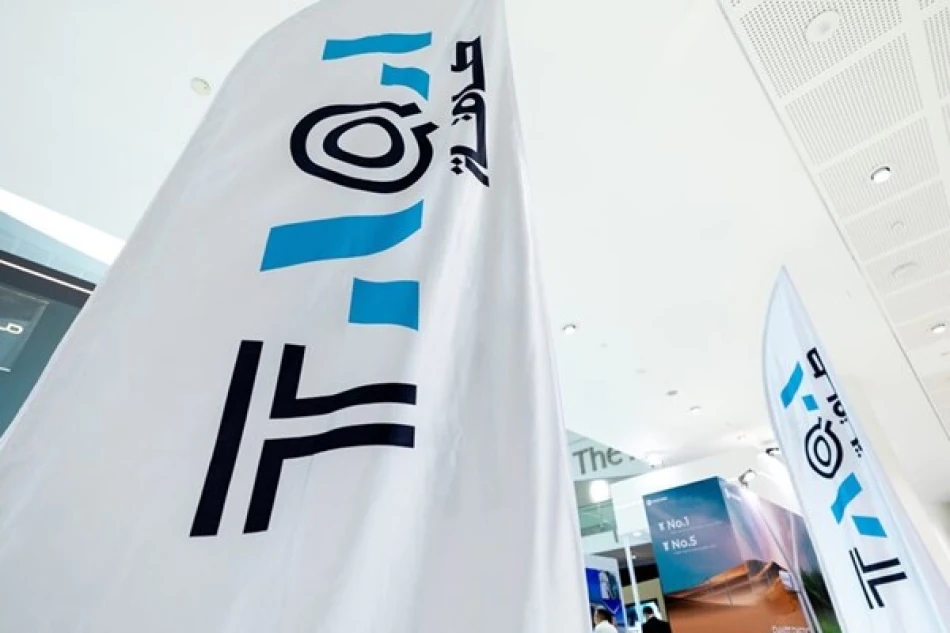
Emirati Energy Giant 'Taqa' Reports Impressive Earnings of AED 3.7 Billion in H1 2025
UAE Energy Giant TAQA Posts $1 Billion Profit Despite Oil Production Setbacks
Abu Dhabi National Energy Company (TAQA) reported a 19.7% decline in net income to AED 3.7 billion ($1 billion) for the first half of 2025, as the UAE utility giant grappled with reduced oil and gas output from UK assets and higher financing costs. Despite these headwinds, the company maintained its aggressive renewable energy expansion and grid modernization strategy, signaling confidence in the region's energy transition trajectory.
Mixed Performance Reflects Industry-Wide Pressures
TAQA's financial results paint a picture of resilience amid challenging market conditions. While revenues grew 4.5% year-on-year to AED 28.4 billion, profitability took a hit from predictable factors including the shutdown of four UK oil and gas assets, weaker crude prices, and elevated borrowing costs across business segments.
The company's adjusted EBITDA fell 11% to AED 10.2 billion, reflecting broader pressures facing integrated energy companies globally. However, TAQA's core utilities business—which serves as the backbone of Abu Dhabi's power and water infrastructure—maintained strong profitability, demonstrating the defensive characteristics that make regulated utilities attractive to institutional investors.
Strategic Investments Signal Long-Term Vision
Green Bond Financing Accelerates Renewable Push
In a significant move that underscores the UAE's commitment to energy diversification, TAQA's renewable energy arm Masdar issued $1 billion in green bonds during the reporting period. This financing vehicle will fund new renewable projects as part of Masdar's ambitious target to reach 100 GW of global renewable capacity by 2030—a goal that would position it among the world's largest clean energy developers.
The green bond issuance reflects growing investor appetite for sustainable infrastructure financing in the Middle East, following similar successful offerings from Saudi Arabia's ACWA Power and other regional energy players. This trend mirrors the broader global shift toward ESG-compliant investments, particularly in the energy sector.
Grid Modernization for AI and Digital Infrastructure
TAQA's domestic strategy reveals the UAE's preparation for the next wave of energy demand driven by artificial intelligence and digital infrastructure. The company signed agreements to restructure the Shuweihat 1 plant, converting it from a combined power and water facility into a flexible backup power generation station. This conversion supports greater renewable energy integration into Abu Dhabi's grid by enhancing stability during peak demand periods.
The move follows the announcement of the 1 GW Al Dhafra thermal power plant project, designed to provide controllable electricity capacity for the UAE's growing AI and digital infrastructure needs. This strategic positioning mirrors similar grid enhancement efforts in Singapore and other tech-forward economies preparing for exponential data center growth.
International Expansion Gains Momentum
Despite domestic challenges, TAQA continued executing its international growth strategy, with particular focus on Morocco's expanding energy market. This expansion aligns with the UAE's broader diplomatic and economic engagement across Africa and reflects the company's evolution from a regional utility into a global energy infrastructure player.
The international push comes at a time when many Middle Eastern energy companies are diversifying geographically to reduce dependence on volatile hydrocarbon markets. TAQA's approach of combining traditional utilities expertise with renewable energy development positions it competitively against established players like France's Engie or Germany's RWE in emerging markets.
Financial Discipline Amid Growth Investments
TAQA demonstrated financial prudence by reducing total debt to AED 61.7 billion through scheduled repayments and bond maturities, while simultaneously accelerating capital expenditure to AED 5.2 billion. This capital allocation targeted flexible power generation, transmission network upgrades, and strategic water desalination projects—all critical infrastructure for the UAE's economic diversification goals.
The company's ability to maintain investment levels while reducing debt load suggests strong cash generation capabilities and access to capital markets, crucial advantages as the energy transition accelerates and infrastructure demands intensify.
Market Implications and Outlook
TAQA's performance reflects broader themes shaping the global energy sector: the challenge of managing traditional energy assets during the transition, the capital intensity of grid modernization, and the strategic importance of renewable energy scale. For investors, the company represents a unique exposure to the UAE's economic transformation while maintaining defensive utility characteristics.
The focus on AI-ready infrastructure and flexible grid solutions positions TAQA ahead of the curve in addressing next-generation energy demands. As regional governments prioritize digital economy development and data localization, utilities with advanced grid capabilities and renewable integration expertise will likely command premium valuations.
Looking forward, TAQA's success will depend on execution of its international expansion plans, the pace of domestic renewable energy adoption, and its ability to balance shareholder returns with the substantial capital requirements of energy transition infrastructure.
Most Viewed News

 Layla Al Mansoori
Layla Al Mansoori






